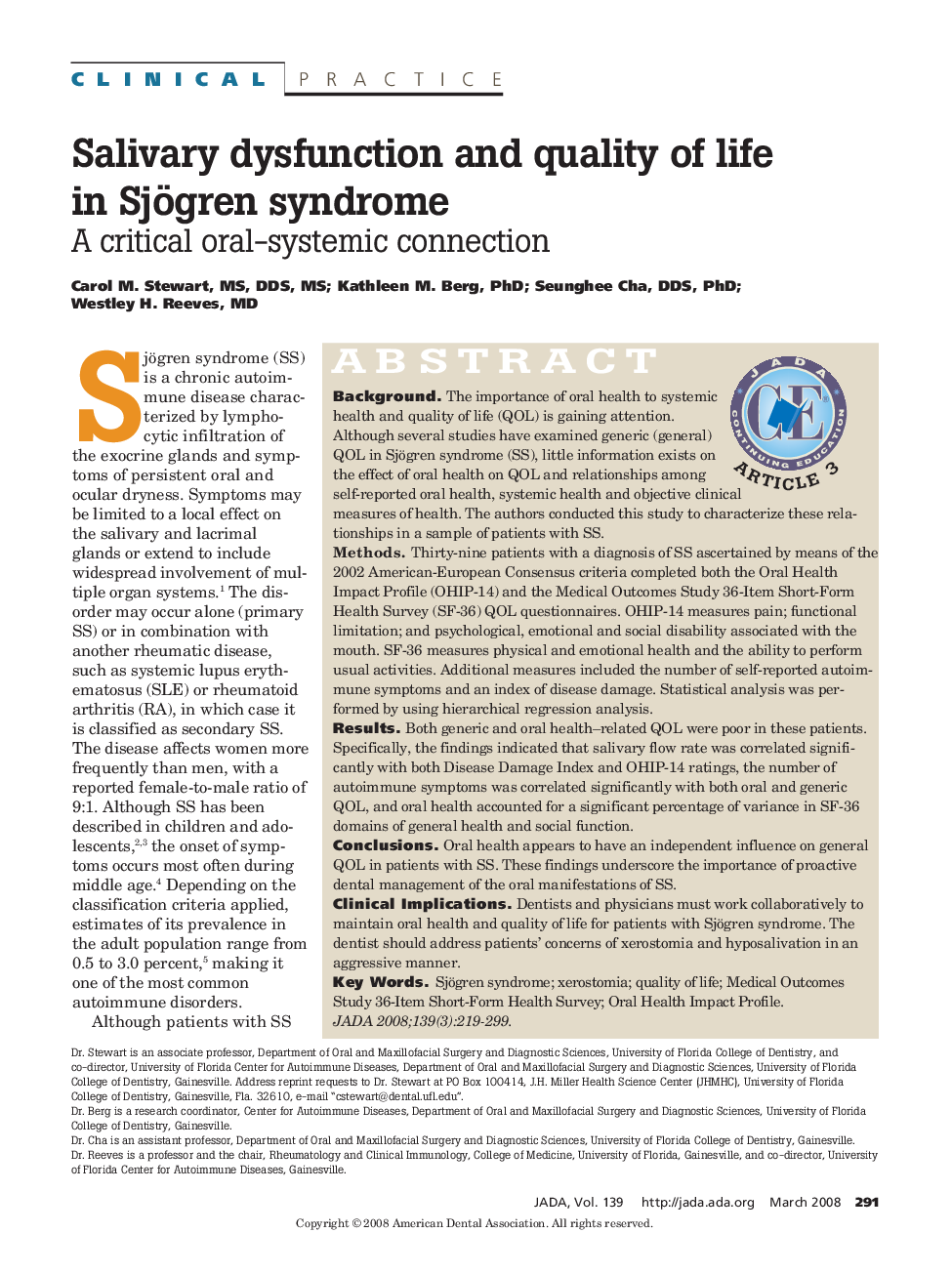| Article ID | Journal | Published Year | Pages | File Type |
|---|---|---|---|---|
| 3139488 | The Journal of the American Dental Association | 2008 | 9 Pages |
ABSTRACT BackgroundThe importance of oral health to systemic health and quality of life (QOL) is gaining attention. Although several studies have examined generic (general) QOL in Sjögren syndrome (SS), little information exists on the effect of oral health on QOL and relationships among self-reported oral health, systemic health and objective clinical measures of health. The authors conducted this study to characterize these relationships in a sample of patients with SS.MethodsThirty-nine patients with a diagnosis of SS ascertained by means of the 2002 American-European Consensus criteria completed both the Oral Health Impact Profile (OHIP-14) and the Medical Outcomes Study 36-Item Short-Form Health Survey (SF-36) QOL questionnaires. OHIP-14 measures pain; functional limitation; and psychological, emotional and social disability associated with the mouth. SF-36 measures physical and emotional health and the ability to perform usual activities. Additional measures included the number of self-reported autoimmune symptoms and an index of disease damage. Statistical analysis was performed by using hierarchical regression analysis.ResultsBoth generic and oral health–related QOL were poor in these patients. Specifically, the findings indicated that salivary flow rate was correlated significantly with both Disease Damage Index and OHIP-14 ratings, the number of autoimmune symptoms was correlated significantly with both oral and generic QOL, and oral health accounted for a significant percentage of variance in SF-36 domains of general health and social function.ConclusionsOral health appears to have an independent influence on general QOL in patients with SS. These findings underscore the importance of proactive dental management of the oral manifestations of SS.Clinical ImplicationsDentists and physicians must work collaboratively to maintain oral health and quality of life for patients with Sjögren syndrome. The dentist should address patients' concerns of xerostomia and hyposalivation in an aggressive manner.
